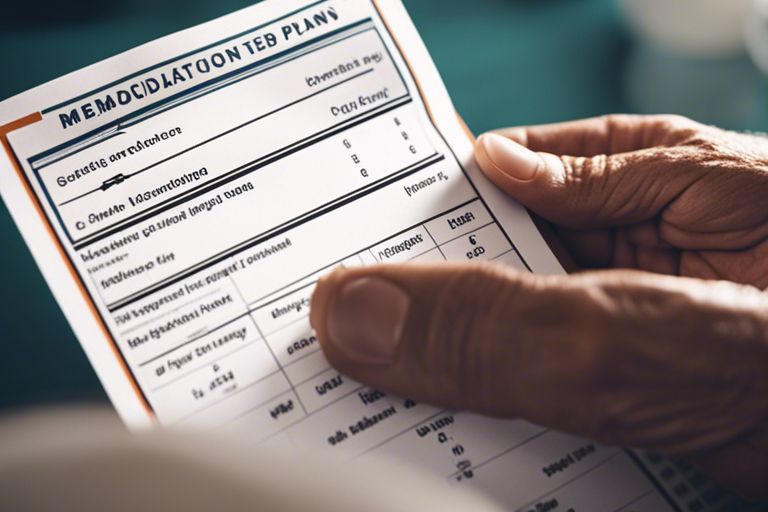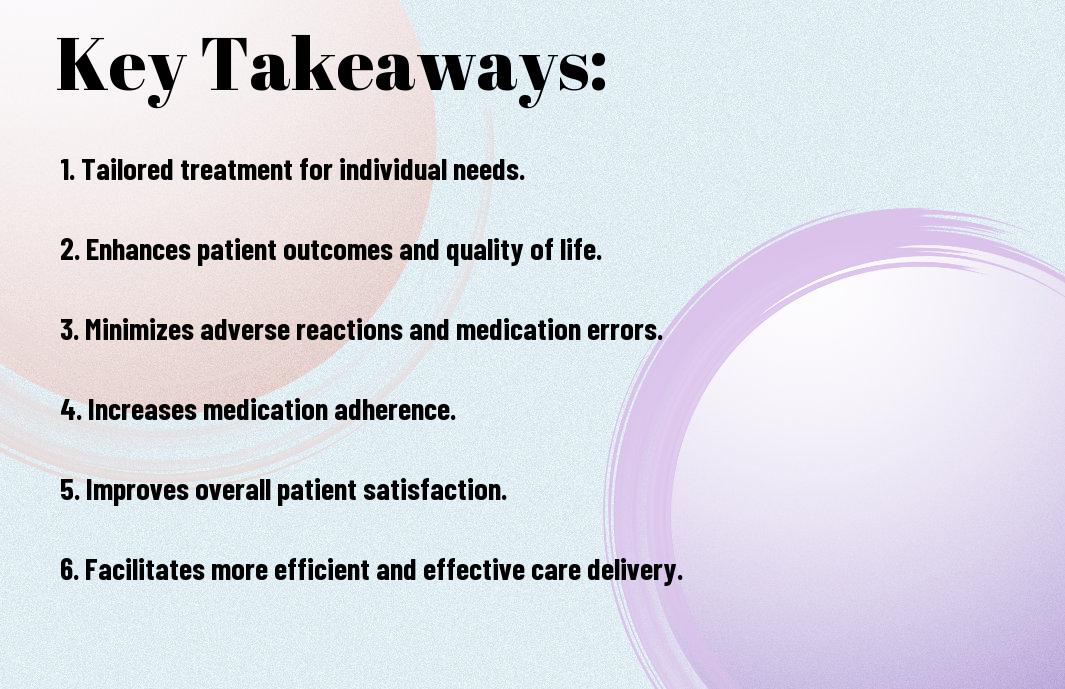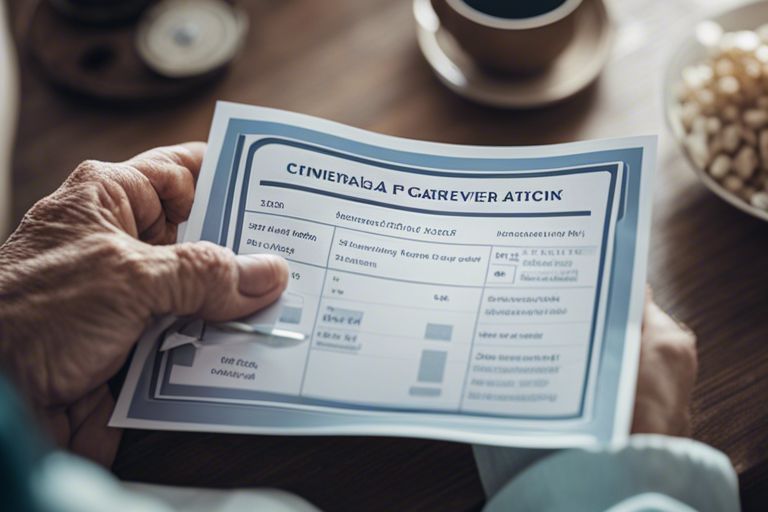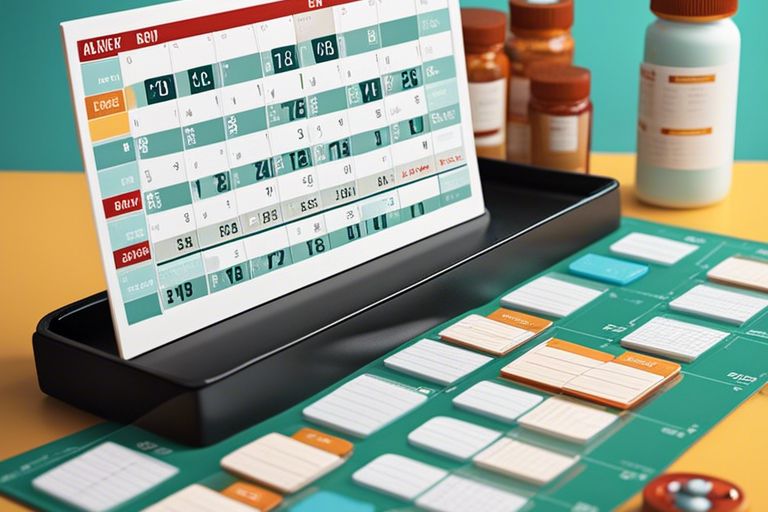
Personalized medication plans play a crucial role in ensuring the well-being of individuals receiving home care. Tailoring medication regimens to each person’s unique needs can optimize treatment effectiveness, minimize adverse reactions, and improve overall health outcomes. By considering factors such as age, medical history, and specific conditions, healthcare providers can develop customized plans that are safer and more efficient than one-size-fits-all approaches. Embracing personalized medication plans in home care settings is not just a trend but a necessary step towards providing quality and individualized healthcare.
Key Takeaways:
- Customization is Key: Personalized medication plans are imperative for home care because each individual’s health needs are unique, and a one-size-fits-all approach is not effective.
- Improving Health Outcomes: Tailored medication plans help in better managing chronic conditions, reducing adverse drug interactions, and enhancing overall patient health outcomes.
- Patient Engagement: Involving patients in the development of their personalized medication plans promotes better adherence, empowers individuals to take control of their health, and fosters a collaborative relationship between patients and healthcare providers.

The Importance of Personalization
A personalized medication plan is crucial in ensuring the effective treatment and management of medical conditions for patients receiving home care. According to a study on Personalized Health Planning in Primary Care Settings, personalized medication plans tailored to individual patients’ needs can lead to better health outcomes and improved quality of life.
One-Size-Fits-All Approach Fails
To tackle the complexities of various health conditions, a one-size-fits-all approach to medication plans simply falls short. Each patient has unique medical histories, genetic makeups, and lifestyle factors that can influence how they respond to treatments. Ignoring these individual differences can result in suboptimal outcomes and even adverse effects.
The Consequences of Inadequate Medication Plans
One of the most critical aspects of personalized medication plans is that they help mitigate the risks associated with incorrect dosages, adverse drug interactions, and medication non-adherence. Failure to address these factors can lead to serious consequences such as hospitalizations, worsening of medical conditions, and decreased quality of life for patients.
This underscores the importance of healthcare providers taking the time to personalize medication plans based on each patient’s specific needs and circumstances, ultimately leading to better health outcomes and enhanced overall well-being.
Home Care Challenges
Complexity of Medication Regimens
You may find that managing multiple medications can be overwhelming when caring for yourself or a loved one at home. Complex medication regimens require strict adherence to specific dosages and schedules, which can be confusing and lead to potential errors.
With personalized medication plans, healthcare providers can tailor the regimen to the individual’s needs, simplifying the process and reducing the risk of medication errors. By considering factors such as age, weight, allergies, and existing medical conditions, a customized plan can help ensure the right medications are taken at the right time.
Limited Resources and Support
Regimens for managing medications at home can be further complicated by limited resources and support. Family caregivers may lack the necessary training or assistance to confidently administer medications, leading to uncertainties and mistakes.
A comprehensive support system that includes education, access to healthcare professionals, and clear communication channels is crucial for individuals receiving home care. With the right resources in place, the likelihood of medication errors can be significantly reduced, promoting better health outcomes.

The Role of Personalized Medication Plans
To provide the best care for individuals receiving home care, personalized medication plans play a crucial role. These plans are tailored to meet the specific needs of each patient, taking into account their medical history, current conditions, and lifestyle factors. By customizing medication plans, healthcare providers can optimize treatment outcomes and ensure the safety and well-being of patients.
Tailoring Treatment to Individual Needs
Individualized medication plans are designed to address the unique requirements of each patient. This approach takes into consideration factors such as allergies, existing medical conditions, potential drug interactions, and personal preferences. By tailoring treatment to individual needs, healthcare providers can minimize the risk of adverse reactions and maximize the effectiveness of medications.
Improving Adherence and Outcomes
Individualized medication plans are imperative for improving patient adherence to prescribed treatments. By creating a plan that is specifically tailored to the individual, healthcare providers can increase patient understanding and engagement with their medication regimen. This personalized approach can lead to improved outcomes, reduced hospitalizations, and enhanced overall quality of life for patients.
It is crucial for healthcare providers to regularly review and adjust personalized medication plans to ensure that they continue to meet the evolving needs of patients. By monitoring medication effectiveness and addressing any issues that may arise, healthcare providers can help individuals achieve the best possible health outcomes while receiving home care.
Benefits of Personalized Medication Plans
Enhanced Patient Safety
For patients receiving home care, personalized medication plans play a critical role in enhancing patient safety. These plans are tailored to the individual’s specific health needs, taking into account factors such as allergies, existing conditions, and potential drug interactions. By ensuring that medications are carefully selected and dosages are accurate, personalized plans help minimize the risk of adverse events and medication errors.
Reduced Hospital Readmissions
Personalized medication plans can significantly contribute to reducing hospital readmissions among patients. By optimizing medication regimens based on the patient’s unique requirements, these plans help improve treatment adherence and efficacy. In turn, this can lead to better management of chronic conditions and a lower likelihood of complications that may necessitate hospitalization.
Plus, personalized medication plans also facilitate better communication between healthcare providers and patients, ensuring that any issues or changes in the patient’s condition are promptly addressed to prevent deterioration and the need for urgent medical intervention.
Improved Quality of Life
Safety and efficacy of medication are crucial for enhancing the overall quality of life for patients receiving home care. Personalized medication plans are designed to optimize treatment outcomes and minimize side effects, allowing patients to better manage their symptoms and maintain their independence. This, in turn, can lead to improved physical and mental well-being, enabling patients to engage more fully in their daily activities and enjoy a higher quality of life.
Life at home can be made more comfortable and sustainable with personalized medication plans that address the unique needs of each patient, promoting a sense of control and empowerment over their health and well-being.

Overcoming Barriers to Personalization
Now, as we examine deeper into the importance of personalized medication plans for home care, it is crucial to address the various barriers that may hinder the implementation of such plans. Two significant challenges in this regard are cost concerns and the need for leveraging technology and data analytics.
Addressing Cost Concerns
The issue of cost often arises when discussing personalized medication plans for home care. Many individuals fear that personalized care may come with a hefty price tag, making it inaccessible for those with limited financial resources. However, it is crucial to understand that personalized medication plans do not necessarily mean higher costs. In fact, tailored treatments can lead to cost savings in the long run by preventing adverse drug reactions, hospitalizations, and unnecessary medication expenses.
Leveraging Technology and Data Analytics
The integration of technology and data analytics plays a pivotal role in overcoming barriers to personalization in medication plans for home care. Technology enables healthcare providers to gather and analyze vast amounts of patient data, allowing for a more comprehensive understanding of individual needs and preferences. By leveraging data analytics, healthcare professionals can identify patterns, predict outcomes, and optimize treatment plans for better patient outcomes.
Concerns: It is important to address concerns about data privacy and security when implementing technology-driven personalized medication plans. Healthcare providers must ensure that stringent measures are in place to safeguard patient information and comply with regulatory standards to maintain trust and confidentiality.
Implementing Personalized Medication Plans
Unlike traditional one-size-fits-all approaches, personalized medication plans tailor treatments to individual patients based on their unique needs and characteristics. According to The Role of Personalized Healthcare, collaborative care models involving healthcare providers, pharmacists, and caregivers are crucial in implementing personalized medication plans effectively. This interdisciplinary approach ensures that each aspect of the patient’s care is considered, leading to more precise and comprehensive medication plans.
Collaborative Care Models
Personalized medication plans require a collaborative effort among healthcare professionals and caregivers to gather accurate information regarding the patient’s medical history, allergies, and current medications. By working together, these stakeholders can create a holistic medication plan that considers the patient’s unique circumstances and minimizes the risk of adverse reactions or drug interactions. This model of care emphasizes communication and cooperation to ensure that the patient receives the most effective and personalized treatment possible.
Patient Education and Empowerment
Implementing personalized medication plans also involves educating and empowering patients to take an active role in their healthcare. Patients must understand the importance of adhering to their medication regimen, as well as the potential side effects and benefits of their treatment. By providing patients with the knowledge and tools to manage their medications effectively, healthcare providers can improve treatment outcomes and overall patient satisfaction.
Empowerment plays a significant role in ensuring that patients feel confident and capable of managing their medication as prescribed. When patients are actively involved in their care, they are more likely to follow their treatment plan diligently and communicate any concerns or issues to their healthcare team promptly. This collaborative approach fosters a sense of autonomy and responsibility in patients, ultimately leading to better health outcomes and improved quality of life.
To wrap up
Ultimately, personalized medication plans are absolutely important for home care because they take into account the unique needs and circumstances of each individual. By tailoring medication regimens to specific health conditions, preferences, and lifestyles, these customized plans can significantly improve outcomes and quality of life for patients. The shift towards personalized medicine represents a crucial advancement in healthcare, offering a more effective and efficient approach to medication management in the home setting.
FAQ
Q: Why are personalized medication plans important for home care?
A: Personalized medication plans are important for home care because they cater to the unique needs and conditions of each individual, ensuring optimal health outcomes.
Q: What factors are considered when creating personalized medication plans?
A: When creating personalized medication plans, factors such as medical history, current medications, allergies, lifestyle, and treatment goals are taken into account.
Q: How do personalized medication plans benefit patients receiving home care?
A: Personalized medication plans benefit patients receiving home care by reducing the risk of adverse drug reactions, improving medication adherence, and achieving better health outcomes.
Q: Who is responsible for developing personalized medication plans for home care patients?
A: Healthcare professionals, such as doctors, pharmacists, and nurses, are responsible for developing personalized medication plans for home care patients.
Q: Can personalized medication plans be adjusted over time?
A: Yes, personalized medication plans can be adjusted over time to accommodate changes in the patient’s health status, response to treatment, or medication availability.
Q: Are there any tools or technologies available to assist in creating personalized medication plans?
A: Yes, there are tools and technologies, such as electronic health records and medication management software, that can help healthcare professionals create and manage personalized medication plans.
Q: What are the potential risks of not having a personalized medication plan for home care patients?
A: Not having a personalized medication plan for home care patients can lead to medication errors, drug interactions, treatment inefficacy, and compromised patient safety.


No Comments